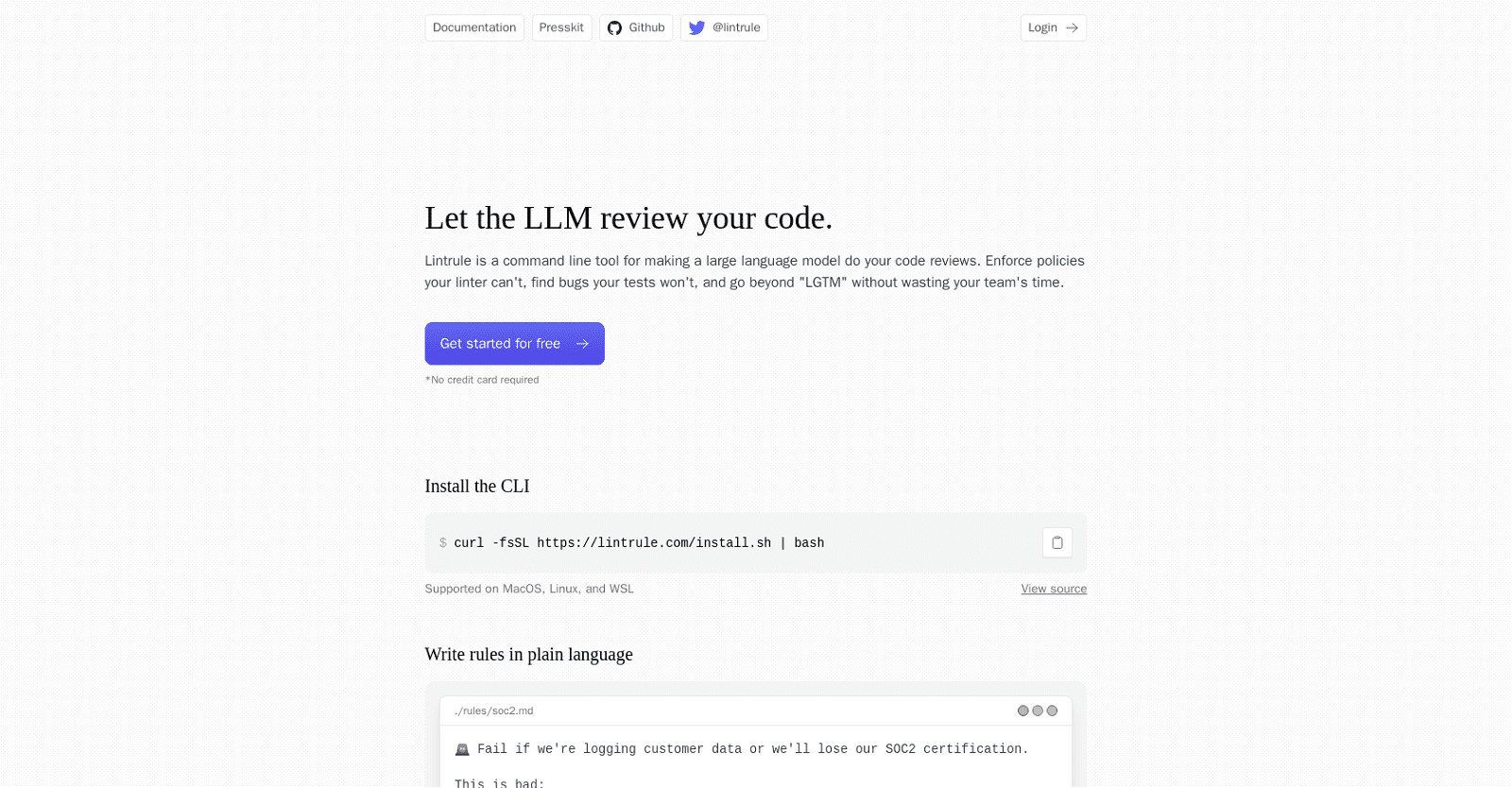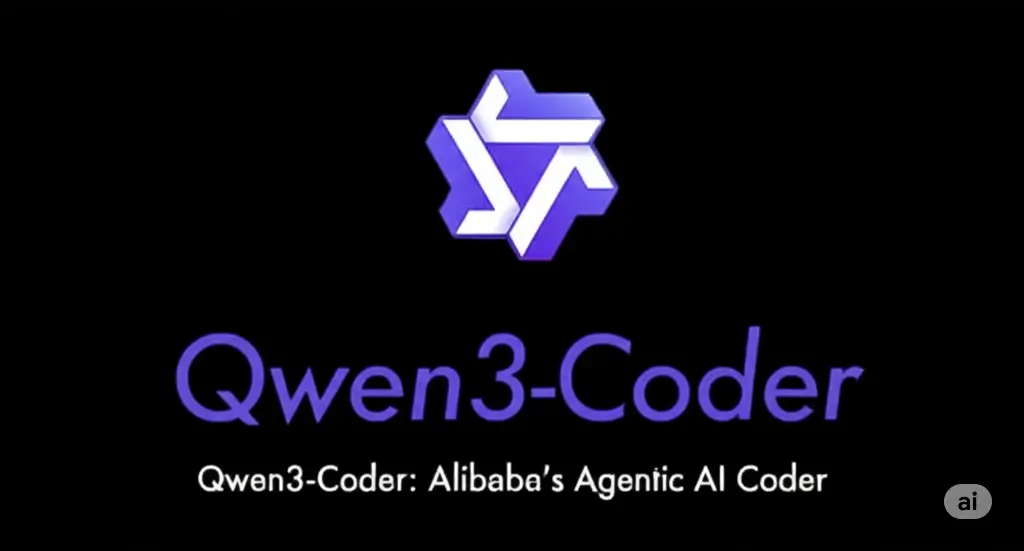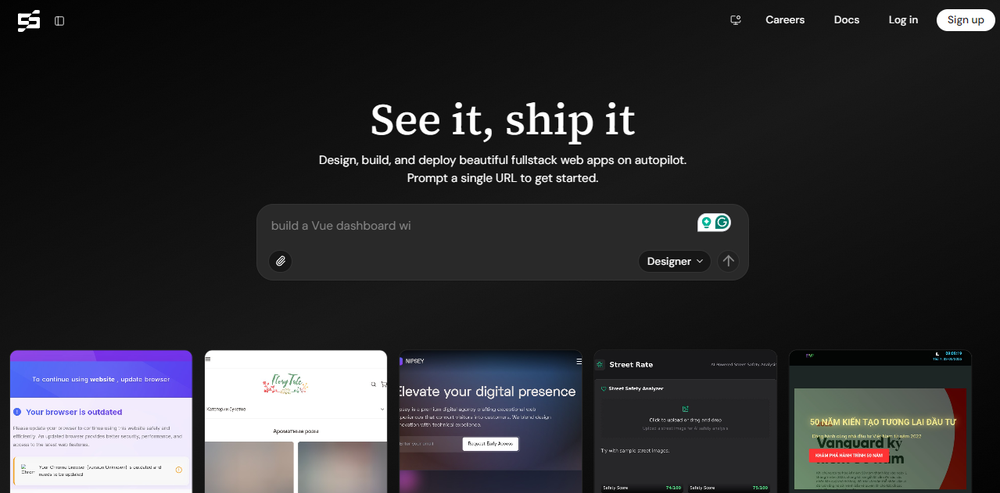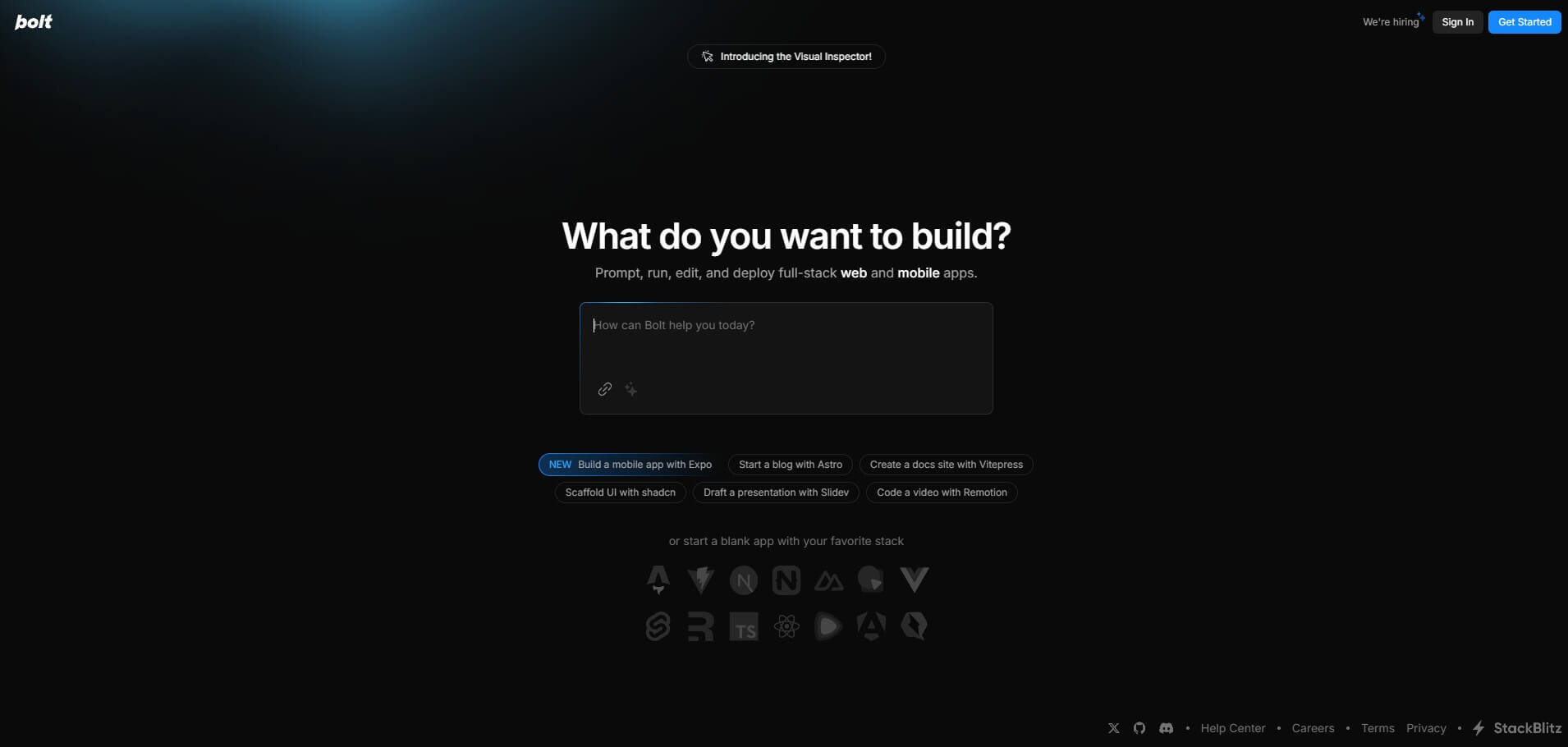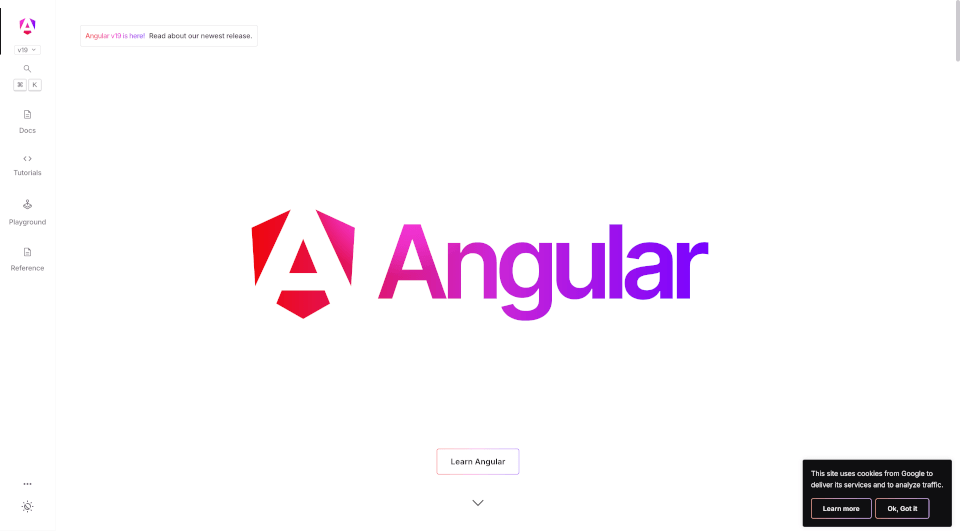Lintrule is a command-line tool crafted to elevate code review processes using a large language model (LLM). It transcends conventional linters and tests, enabling users to enforce nuanced policies and pinpoint bugs that might escape traditional testing methods.
This tool streamlines code quality enhancement efforts, saving precious time for development teams. It’s easily installed via a CLI command, compatible with MacOS, Linux, and WSL environments.
Lintrule empowers users to articulate rules in plain language, exemplified in the /rules/soc2.md file. It conducts parallel checks across multiple files, delivering clear pass or fail results while flagging specific issues for attention. Integration with popular platforms like GitHub is seamless, demonstrated by provided GitHub links.
Customizability is a key feature, as users can tailor rules through the Lintrule dashboard to fit project requirements. Cost estimates, based on changed lines of code, are transparent, with pricing examples provided for different project sizes.
Detailed instructions guide users through setup, login, and rule configuration within their codebase. File-specific rule application enhances customization, while Lintrule acknowledges the potential for false positives, encouraging users to craft precise rules to mitigate them.
In essence, Lintrule stands as a potent ally, harnessing the capabilities of a large language model to fortify code review procedures, enforce policies, and unearth elusive bugs, fostering heightened code quality and productivity.
More details about Lintrule
What platforms does Lintrule support?
Lintrule is compatible with MacOS, Linux, and WSL platforms. Additionally, it seamlessly integrates with the popular code hosting platform GitHub.
How can I estimate Lintrule costs for my project?
To estimate Lintrule costs for your project, simply execute a command within the git repository. This command triggers a billing estimate based on the git diffs, with pricing determined by the number of lines of code changed. This estimate provides users with a rough idea of their anticipated bill.
How does Lintrule handle false positives?
In instances where false positives are a concern, Lintrule advises users to craft specific rules. This approach helps minimize unwanted alerts. Although general instructions may occasionally yield undesired outcomes due to the human-like processing of Lintrule, the tool consistently maintains accuracy.
Can I limit Lintrule checks to specific files?
Absolutely. Lintrule offers users the flexibility to specify the files on which rules should be applied. This can be accomplished by adding the files to the frontmatter, enhancing customization and providing users with greater control over the checks performed.
